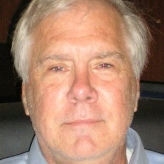On June 10, 1963, President Kennedy delivered the commencement address at American University in Washington, DC. In that speech, President Kennedy asked Americans to reexamine their pessimism about the human prospect. “Too many of us think. . .that war is inevitable, that mankind is doomed, that we are gripped by forces we cannot control.” But Kennedy insisted that “human destiny” remained in human hands. A durable peace could be constructed “not on sudden revolution in human nature but on a gradual evolution in human institutions. . .World peace, like community peace, does not require that each man love his neighbor. It requires only that they live together in mutual tolerance, submitting their disputes to a just and peaceful settlement.”
Then President Kennedy became more specific: “We seek to strengthen the United Nations. . .to develop it into a genuine world security system. . .This will require a new effort to achieve world law. . .. Our primary long-range interest. . .is general and complete disarmament. . .to build the transformation of the United Nations into a World Federation."
The idea of abolishing war through the establishment of a world government is an idea that long-proceeded John F. Kennedy. In centuries before, figures like Dante Alighieri, William Penn, Jacques Rousseau, Immanuel Kant, Jeremy Bentham, Alfred Lord Tennyson, Victor Hugo—even Ulysses S. Grant. The long historic background of the idea is charted in Strobe Talbott’s 2008 book, The Great Experiment: The Story of Ancient Empires, Modern States, and the Quest for a Global Nation. Talbott pegs his account on Plutarch’s report that one of the indictments of Socrates, for which he chose to drink the hemlock, was his declaration that he was not an Athenian or a Greek, but a “citizen of the world.”
Albert Einstein declared: “The world’s present system of sovereign nations can lead only to barbarism, war, and inhumanity. There is no salvation for civilization, or even humanity, other than the creation of a world government.”
Winston Churchill said that “unless some effective world super-government can be set up and brought quickly into action, the prospects for peace and human progress are dark and doubtful.”
-----
ps. Excerpted from a book called Globanomics.



